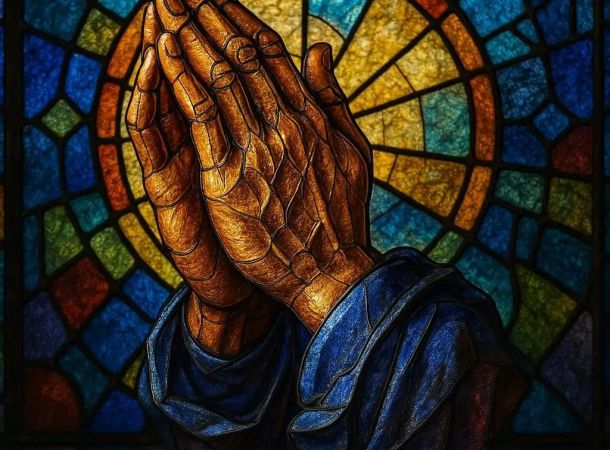Holy/Common
Kedoshim is the next portion in Leviticus 19:1-20:27 and means “holy ones.” It starts with a tall order of “You shall be holy as I the LORD your God am holy” and ends with the same as if the portion is between two holy callings book ends. So, what exactly is holiness? It could mean a few different things.
The first definition of holiness we will explore is that of God separating someone from a crowd for a specific purpose. It can be applied to set apart vessels used for a unique function in the Tabernacle worship system. Using that particular vessel for another reason would render it common and no longer holy. Applying this notion to humans means that God chose us, set us apart from the larger population, and assigned us a specific purpose. Us refers to anyone aware of and who loves the Holy One. That purpose is to walk in the commandments because doing so means that we are establishing God’s word as truth in the world and sanctifying the earth. Remember that a simple definition of a mitzvah, or commandment, is a good deed. Therefore, the good works created beforehand for us to walk in are the commandments. These ‘good works’ include acts of kindness, charity, and justice. The Torah portion lists the Ten Commandments, along with the principles of doing justice, maintaining sexual purity, and speaking truthfully, as reminders of holiness.
Ephesians 2:10: For we are His workmanship—created in Messiah Yeshua for good deeds, which God prepared beforehand so we might walk in them.
The following definition of holiness is sanctity. The commandment that begins this Torah portion is for us to be holy ones, as in we have to do the work of being different. At first, there is a sense of loneliness in this calling because the world is driven by the masses, primarily due to our innate desire for acceptance and validation. Thankfully, God tends to separate before He gathers and never leaves us on an island unto ourselves. He separates us from the masses to gather us with like-minded people whose goal is also holiness. The work we have to do is learn our God-given boundaries. There is a lot that is permitted, and God expects us not to lack self-control. He desires that we avoid extremes in living, neither being a holy hermit so afraid to live nor overindulging in the world’s delicacies. Self-discipline is a type of holiness. It’s a responsibility we have to ourselves and God. We can get away with being a holy hedonist and living within the Torah’s instructions, but Paul tells us that even if something is free for us to do, we should ask ourselves whether it is for our good and the good of others. Essentially, because we can doesn’t mean we should if our goal is holiness.
Galatians 5:13: Brothers and sisters, you were called to freedom—only do not let your freedom become an opportunity for the flesh (earthly nature), but through love serve one another.
Speak to all the congregation of the children of Israel, and say to them: You shall be holy . . . (19:2) The easiest thing is to hide from the world and its follies, seclude oneself in a room, and be a holy hermit. (A ‘holy hermit’ in this context refers to a person who isolates themselves from the world in an attempt to maintain their holiness.) What the Torah desires, however, is that a person should be part and parcel of ‘all the congregation of the children of Israel’—and be holy. (Alshich)
There is also a sense of moral purity in the act of holiness that strives to elevate the human experience by imbuing it with the divine. The call is to make our mundane daily rituals an act of worship. We do this when we invite the Holy One into our thoughts, our actions, and our work. But it’s not just about inviting. It’s about acknowledging His presence. When we express gratitude to God throughout our day for the morning coffee, for waking us up, for the sunrise and sunset, and for our friends and family, we bring the divine into our space. This act of gratitude is a powerful connector, a bridge between the sacred and the human. When we do something out of love for others, without wanting anything in return, we manifest His divine presence into the world. When we obey the commandments, which ultimately lead to loving God and our fellow humans, we infuse our earthly nature with the Spirit, creating holiness.
If I had to condense holiness into a sentence, it requires a correct understanding of our purpose, aligning our words and actions with that purpose, and living authentically. A neuroscience study conducted by PubMedCentral revealed that authenticity was the most powerful energy emanating from a person. Authenticity is living within your purpose, being wholly oneself, abiding in one’s truth, and behaving according to your core values. Authenticity is holiness. Our purpose is to walk in the right choices and do so humbly and truthfully. Living authentically, in alignment with our purpose and values, is a key aspect of holiness.
Micah 6:8: He has shown you, O man, what is good; And what does the Lord require of you but to do justly, to love mercy, and to walk humbly with your God?
The enemy we would want to avoid in this portion is taking something holy and making it commonplace. This cautionary note reminds us to be mindful of our actions and their impact on the sacred. Sex is a prime example of this. God created sex for intimacy, and when we engage intimately with those we have no connection or accountability with, we make the act empty. The Ten Commandments ask us to love God, not to make and worship other gods, to honor the Shabbat, not to carry the Holy One’s name in vain, to honor our parents, and not to lie, cheat, steal, murder, or covet. These are the works the Holy One created us to do, and to rebel against them would render us common and not kedoshim or holy ones (Lv 19.2-4,11-13, 16). We should then apply ourselves to learn about holiness and to live it out authentically.
Sanctify yourself also regarding that which is permissible to you. (Talmud, Yevamot 20a)
Leviticus 20:26: And you shall be holy to Me, for I the Lord am holy, and have separated you from the peoples, that you should be Mine.




Leave a Reply